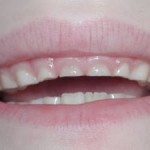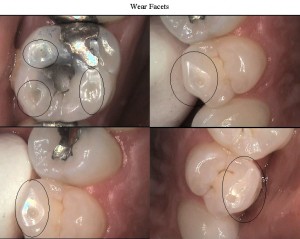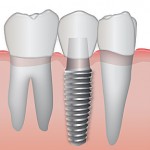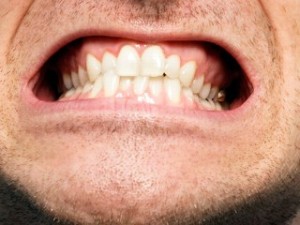Common behaviors seen in children and adults with jaw deficits and subsequent speech and feeding disorders are that of maladaptive oral habits. Such habits include jaw clenching and teeth grinding (bruxism), excessive mouthing of objects, thumb and finger sucking, tongue sucking, lip chewing, nail biting, and extended bottle and pacifier use. These habits, when excessive or are continued past appropriate developmental necessity, can lead to poor dental health, be socially stigmatizing, and inhibit the development of speech clarity. Continue reading
Tag Archives: bruxism
Temporomandibular joint pain Part 1
Temporomandibular joint disorder (TMJD or TMD), or TMJ syndrome, is an umbrella term covering acute or chronic inflammation of the temporomandibular joint, which connects the mandible to the skull. The disorder and resultant dysfunction can result in significant pain and impairment. Because the disorder transcends the boundaries between several health-care disciplines—in particular, dentistry and neurology—there are a variety of treatment approaches. Continue reading
Soft Night Guard Recommendations
A night guard, sometimes spelled “nightguard,” is a piece of hard or soft plastic or silicone molded (in some cases) to fit the shape of your teeth. Its purpose is to keep teeth from grinding into one another. A night guard is worn while sleeping and taken out in the morning. A night guard is also a popular treatment for TMJ, or temporomandibular joint disorder. Night guards are sometimes used in place of a nightly retainer, because a night guard also serves to keep the teeth in place as well as prevent grinding and clenching. Night guards are a well-known treatment for bruxism, otherwise known as tooth grinding and jaw clenching. Continue reading
Top 5 Children Habits You Need to Know About (Part 2)
4. Bruxism
It is a habitual grinding of teeth when the child is not chewing or swallowing. It is divided into Daytime Bruxism (Diurnal) or Night -time Bruxism (Nocturnal). Daytime Bruxism can be conscious or subsconscious grinding along with parafunctional habits and it is usually silent. On the other hand, Night-time Bruxism is categorized as subconscious grinding in a rhythmic pattern. Bruxism happens as a result of faulty fillings, improper teeth occlusion, genetic causes, neurological disturbances, occupational factors, over anxious or stressed children.
Â
What do you notice?
From the tooth surfaces, you will observe your child’s teeth are very much worn off. This feature is called atypical wear facet, whereby the worn area are shiny, uneven with sharp edges on the upper and lower front teeth. Fillings may fracture or tooth may chip off as a result of grinding. Teeth will become mobile and very sensitive to cold and hot food. Besides that, your child may complain of muscular tenderness and fatigue around the cheek on rising in the morning. Jaw movements restricted and difficult in opening mouth for a long time.
   Â
Continue reading
Is it normal to clench my teeth frequently?
 If you do clench/grind your teeth frequently during night or day, you could be having bruxism. Bruxism is the habitual grinding or clenching oh the teeth during day or night, awake or sleeping. The incidence of bruxism has been variously reported as between 5% to 20 %.
Bruxism is divided into 2 types :
a) Day Time Bruxism also known as Diurnal Bruxism. Continue reading
About teeth grinding
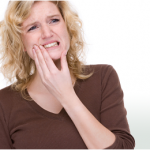
Is bruxism considered as a disease?
No, it is not a disease. Teeth grinding or bruxism is a type of parafunctional habit. Parafunctional habit is the habitual exercise of a body part in a way that is other than the most common use of that body part. Continue reading
Types of Dental Night Guards
Dental night guards are one of several treatment methods prescribed by a dentist to address various types of dental disorders. These problems occur during sleep and can cause damage to teeth and overall mouth alignment. Dental night guards are either custom-made or purchased over the counter. The decision regarding which type of dental night guard to use is based on the problem to be corrected. Continue reading
The Effect of Bruxism on Dental Implant Success
If you lose a tooth because of trauma or disease, a dental professional can create a dental implant to replace that tooth. Implants are titanium rods that replace the root section of the missing tooth and serve as a base for either a porcelain or an acrylic plastic tooth. Continue reading
Teeth Grinding or Bruxism
Have you ever woken up to a sore jaw or to someone complaining about the gnashing sound your teeth make while you were asleep? You could be suffering from bruxism, one of the most common sleep disorders. Continue reading
How Your Daily Habits Can Hurt Your Teeth
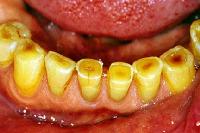
Tooth wear © Medscape
Damage to your teeth can be caused by any process that results in loss of integrity of the tooth surface. Tooth decay is a bacteria-caused form of tooth damage. The other forms of tooth damage are the result of mechanical or chemical assault to the tooth structure which may be brought about by your daily habits for example grinding in your sleep and tooth brushing. Continue reading
